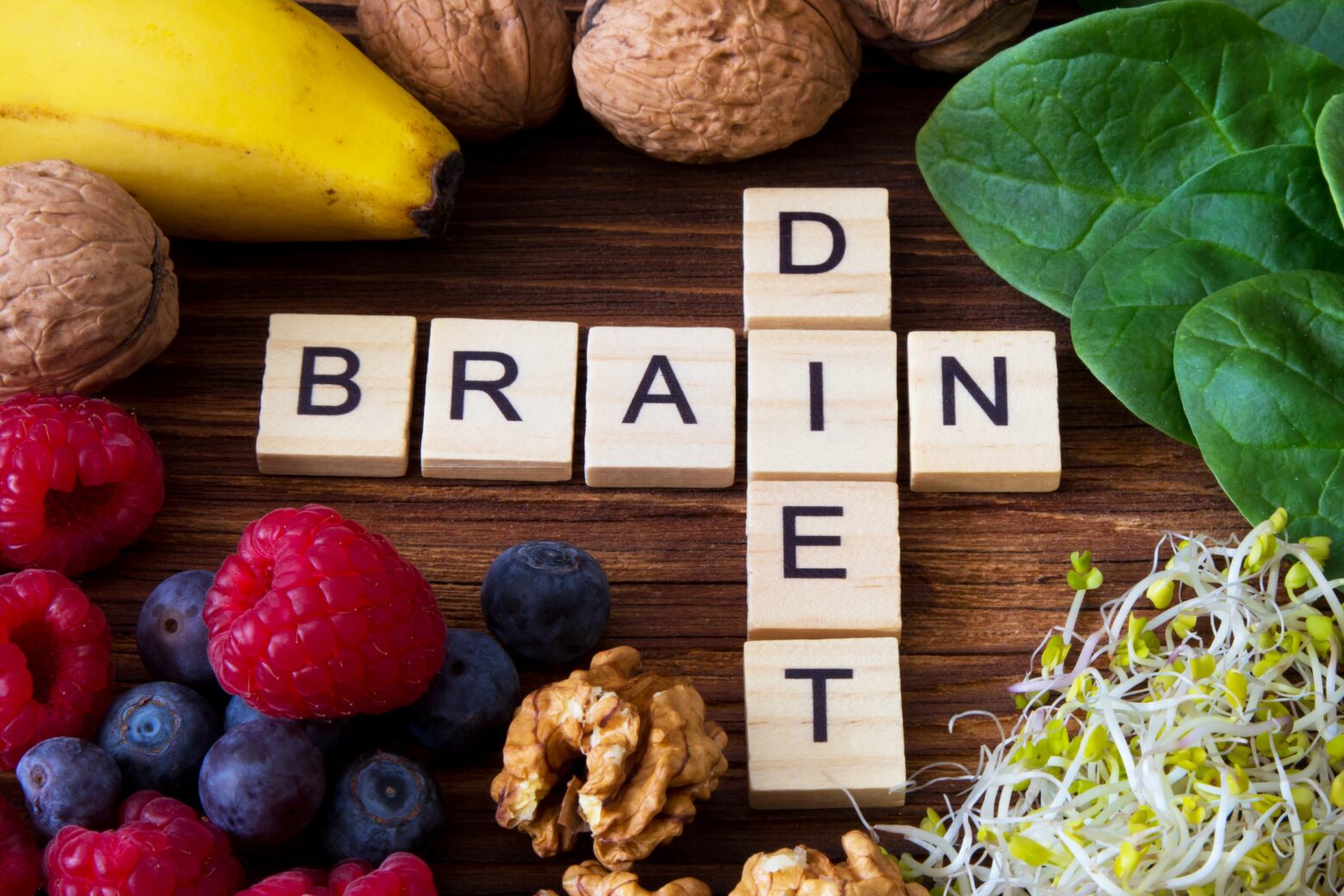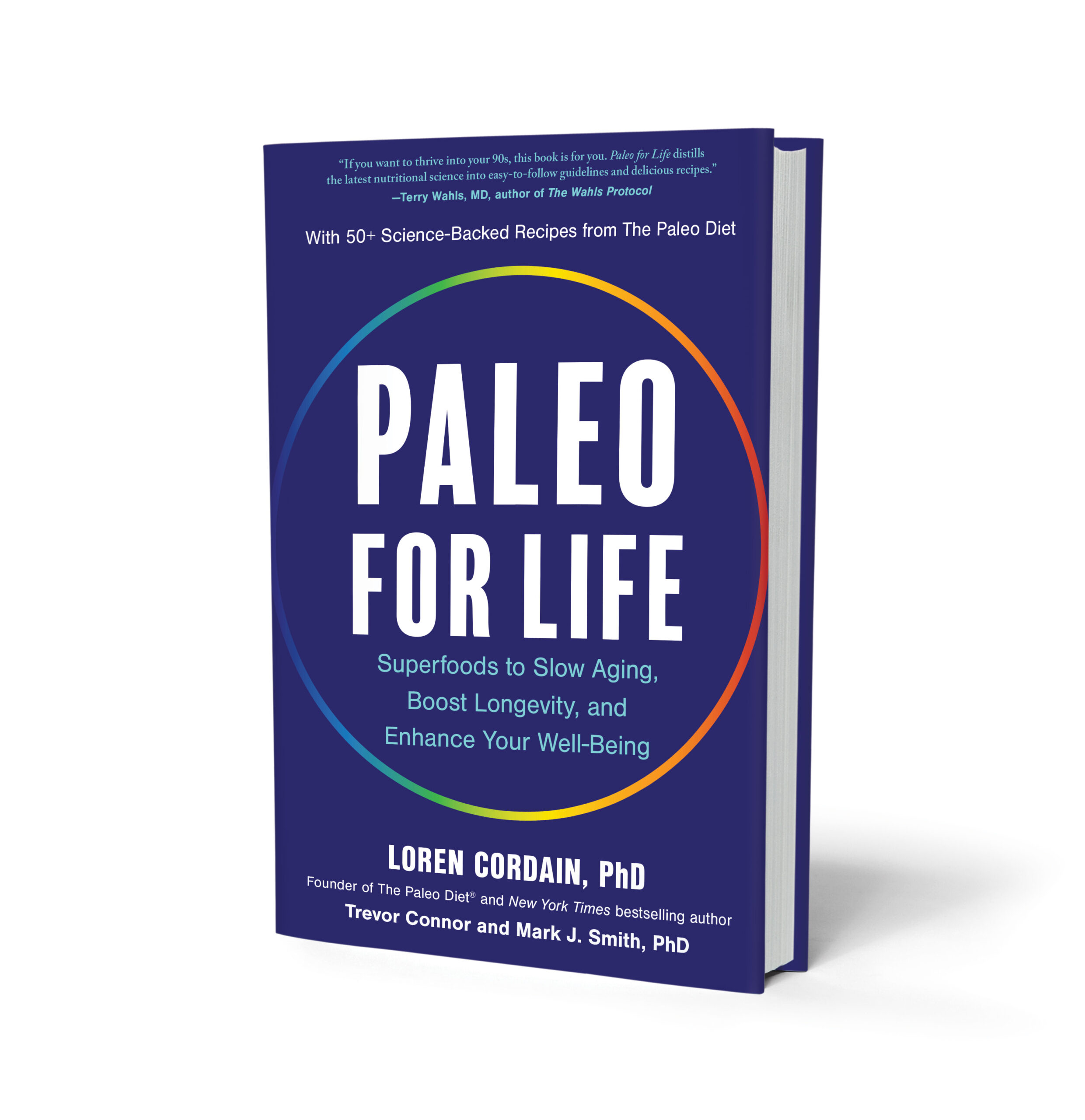Reversing Cognitive Decline With The Bredesen Protocol

[This article discusses health improvements based, at least in part, on a ketogenic diet. Dr. Loren Cordain and many others, including The Paleo Diet® editorial review board, don’t recommend or endorse long-term ketogenic dieting for the general public. They do acknowledge that it can be effective if used short-term and as a therapeutic measure for Alzheimer’s and other diseases.]
Ann Dredge has been called “probably the first New Zealander to come back from end-stage Alzheimer’s.” [1] Her successful fight against this increasingly prevalent and deadly disease [2] was introduced in a previous post and is detailed in her husband Peter’s penetrating book Beating Alzheimer’s, the enemy at the gate: turning despair into hope and action. [3]
The Dredges refused to accept conventional medicine’s dead-end, zero-hope diagnosis, including suggested euthanasia. Instead, they researched their own diet and lifestyle-based solution. They discovered the work of Dr. Mary Newport and neurologist Dr. Dale Bredesen. In a previous article, I described Ann’s daily symptomatic relief using Dr. Newport’s ideas. Dr. Bredesen’s approach became available to Ann through a growing international network of providers who offer his protocol—in the face of ongoing skepticism from the conventional medical community.
Dr. Bredesen is no stranger to The Paleo Diet website. His work has been examined by Professor Loren Cordain [4] and this writer. [5] [6]. His high success ratio is documented in his original study [7] and more recently in Reversal of Cognitive Decline: 100 Patients. [8] His book, The End of Alzheimer’s: The First Program to Prevent and Reverse Cognitive Decline [9] also includes several case studies and a detailed overview of his research, including the proprietary “ReCode” protocol.
Fundamental to this protocol is abandoning the classic Western processed diet for a sustained whole-food “mildly” ketogenic diet.
The three types of Alzheimer’s disease
Diet, however, is just the beginning. Bredesen’s research reveals that Alzheimer’s is an extremely complex disease with multiple contributing factors. Some are common to many patients, others more unique. Bredesen views amyloid “plaques,” a hallmark marker of Alzheimer’s, as indicative of brain impairment. They are not the cause, as many conventional researchers believe, but the result of various stressors or “insults.”
He identifies three distinct types of Alzheimer’s, along with 36 specific potential underlying contributors, which force the brain to triage its resources over time. Amyloid is produced as the brain “downsizes” its own capacity, in response to:
- Chronic inflammation in Type 1 Alzheimer’s
- Impaired “trophic support” (such as insulin resistance, or reduced access to important nutrients, vitamins, or hormones) in Type 2 Alzheimer’s
- Toxic substances or infections (chemicals, heavy metals, molds or fungi; Lyme disease, herpes simplex, P. gingivalis) in Type 3 Alzheimer’s
These basic types can overlap, with “1 plus 2” being the most common combination. Other lifestyle factors can also intrude. Ann Dredge was determined to have been exposed to Lyme disease years before her Alzheimer’s diagnosis.
Extensive testing is needed for each patient to determine what is causing their unique cerebral “perfect storm.”
Too complicated for standard clinical trials
This complexity reveals why the conventional monotherapeutic approach (medication) to Alzheimer’s doesn’t work. As Dr. Bredesen states in his book, there are no effective drugs for this illness, since most drugs can only target one or two of the possible 36 contributing factors. He points out that several major Big Pharma players have recently exited Alzheimer’s research, while others continue in possibly vain attempts to mitigate symptoms.
Unfortunately, his complex, tailored approach to a complex disease is a tough sell in the conventional medical world which emphasizes drugs as the standard of care.
Dr. Bredesen’s book recounts how he has been denied funding for the needed large-scale clinical trials–due to the large number of variables in his intervention. Institutional Review Boards don’t accept that more than one variable can be examined in these trials.
Whether continued success, one patient at a time, will eventually shake loose the necessary dollars, only time will tell.
Dr. Bredesen reported that physicians on these same review boards became interested in using his protocol on their own patients—even as they declined to fund the trials! Not every patient will respond, especially if in the advanced stages of Alzheimer’s—nor will similarly advanced patients respond to the same degree—but the high incidence of measurable improvement is extremely significant.
An overview of ReCode
The “ReCode” protocol is based largely on diet, stress relief, and supplementation. It is definitely not “just another keto diet.”
The outlines are very congruent with the Ancestral lifestyle, including emphasis on whole, low-glycemic index foods, lots of vegetables (preferably organic), and grass-fed or pastured protein. Fish is limited, in particular, to “SMASH” varieties (salmon, mackerel, anchovies, sardines, herring) due to the high potential mercury content in larger pelagic types, like tuna or swordfish.
Sugar, junk food, and processed food in general are strictly limited, if not forbidden. A primary focus of the diet is to combat elevated glucose and insulin, which Dr. Bredesen states “are two of the most important risk factors for Alzheimer’s disease.” [10]
The degree of emphasis on optimizing (rather than normalizing) hormone and nutrient levels, resolving infections or underlying inflammatory contributors, and removing any toxic substances, varies between patients. Dr. Bredesen’s general list of supplements, from Ashwaganda to Zinc, in The End of Alzheimer’s is truly encyclopedic. Not every patient needs to take them all, but most patients take more than a few.
It should be noted that the supplements recommended in the book are specifically intended for Alzheimer’s patients, and that any therapeutic supplementation (for Alzheimer’s or any other condition) should be physician-supervised.
The protocol may include other medical interventions as needed, such as chelation of heavy metals, or hormone replacement therapy, based on individual test results. Alzheimer’s drugs might also be used, depending on diagnosis.
Exercise, stress-relief techniques, and sleep hygiene are also integral parts of the package. Regular exercise helps maintain the “mild” ketosis fostered by the diet. These things also help reduce inflammation.
Medical supervision strongly encouraged
Dr. Bredesen’s chapters on the protocol itself echo many popular Ancestral books and ideas. He states plainly that the conventional Western diet and lifestyle promotes dementia of all types (read Chapter 4 of The End of Alzheimer’s, “How to give yourself Alzheimer’s, a Primer” for a poignant, if amusing, overview of this idea.) His full protocol can be viewed as an intensive, medically supervised “Ancestral living, on steroids” intervention to combat whole lives spent gradually eroding brain health.
It is definitely not a DIY program—although the basic diet and some supplements may be preventive. Underlying issues like hormonal imbalance, Lyme disease or other infections, heavy metals or molds, and specific nutrient deficiencies should be evaluated by a protocol-savvy physician. Dr. Bredesen’s book repeatedly emphasizes the need for thorough testing.
Nevertheless, anyone willing to follow a whole-food-based, low glycemic Ancestral diet can lay important groundwork to reduce the likelihood of Alzheimer’s.
What if there were no Alzheimer’s disease?
While no “cure” has yet been found, the idea of a simple solution to Alzheimer’s is now being examined in terms of financial loss to the medical community.
A recent Science Direct article [12] brings up one of several Alzheimer’s contributors noted by Dr. Bredesen (viruses and infectious agents) and extrapolates that an “unexpected therapy” would cause industrywide job loss and widespread economic destabilization—even while “saving Medicare and Medicaid 195 billion annually.”
Alzheimer’s patients and their families can only hope this problem presents itself. Dr. Bredesen’s work should be a major contributing factor.
References:
- “Beating Alzheimer’s Disease? Anne Dredge’s ‘huge Improvements’ with Dale Bredesen Treatment.” RNZ, 21 Sept. 2018, https://www.rnz.co.nz/national/programmes/afternoons/audio/2018663546/beating-alzheimer-s-disease-anne-dredge-s-huge-improvements-with-dale-bredesen-treatment.
- Bowers, Lois; “Dementia-Related Deaths Have More than Tripled since 2000 – News.” McKnight’s Senior Living, 15 Mar. 2019, https://www.mcknightsseniorliving.com/home/news/dementia-related-deaths-have-more-than-tripled-since-2000/
- Dredge, Peter; Amazon.Com: Beating Alzheimer’s, The Enemy at the Gate: Turning Despair into Hope and Action EBook: Peter Dredge: Gateway. https://www.amazon.com/Beating-Alzheimers-Enemy-Gate-Turning-ebook/dp/B07HH67GV3/ref=sr_1_4?crid=1OL2PXR69Y6EO&keywords=beating+alzheimers&qid=1560174789&s=gateway&sprefix=beating+al%2Caps%2C187&sr=8-4
- Cordain, Loren. OriginalPaleoDiet. “Alzheimer’s Disease and The Paleo Diet | ” The Paleo Diet®, 14 Oct. 2014, https://thepaleodiet.com/alzheimers-disease-paleo-diet/
- Whiteside, David; “Healthy Aging – Increased Awareness of Paleo Diet Implications for Alzheimer’s Is a MUST | The Paleo DietTM.” The Paleo Diet®, 21 Aug. 2018, https://thepaleodiet.com/healthy-aging-increased-awareness-paleo-diet-implications-alzheimers-must/
- Whiteside, David; “Post | Healthy Aging | Paleo55plus.” https://www.paleo55plus.com/post/fighting-alzheimer-s-with-exercise-and-paleo
- Bredesen, Dale E. “Reversal of Cognitive Decline: A Novel Therapeutic Program.” Aging, vol. 6, no. 9, Sept. 2014, pp. 707–17. DOI.org (Crossref), doi:10.18632/aging.100690.
- Bredesen, Dale. Reversal of Cognitive Decline: 100 Patients. https://www.omicsonline.org/open-access/reversal-of-cognitive-decline-100-patients-2161-0460-1000450.pdf. Accessed 28 July 2019.
- Bredesen, Dale E. The End of Alzheimer’s: The First Program to Prevent and Reverse Cognitive Decline. Avery, an imprint of Penguin Random House, 2017. Electronic edition.
- Bredesen, p. 153
- Bredesen, p. 62
- Norins, Leslie C. “Predicted Economic Damage from a Quick, Simple Alzheimer’s Disease Cure.” Medical Hypotheses, vol. 133, Dec. 2019, p. 109398. ScienceDirect, doi:10.1016/j.mehy.2019.109398.
David Whiteside
David Whiteside devotes his time to researching and promoting awareness of Paleo and ancestral dieting in the senior community.
More About The Author




